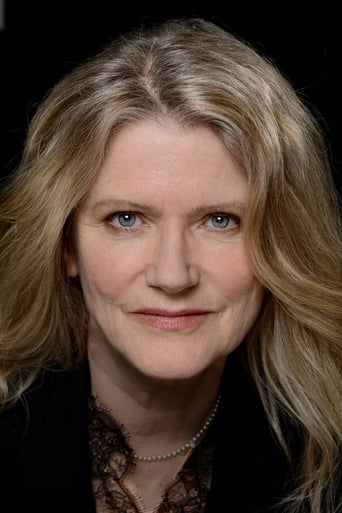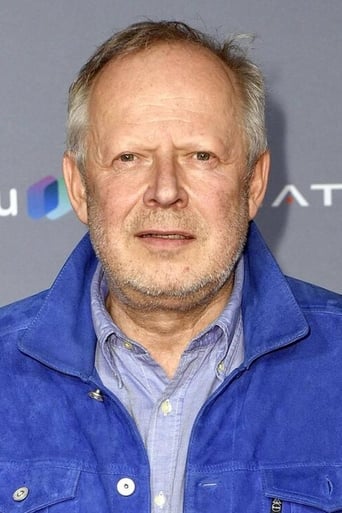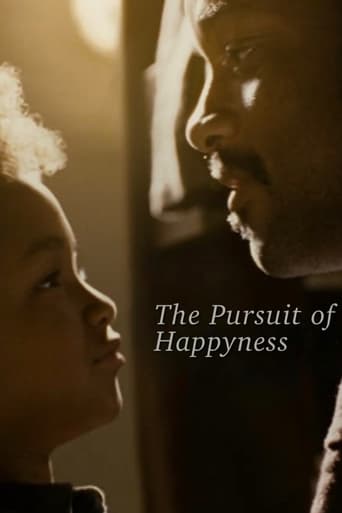Hannah Arendt (2013)
HANNAH ARENDT is a portrait of the genius that shook the world with her discovery of “the banality of evil.” After she attends the Nazi Adolf Eichmann’s trial in Jerusalem, Arendt dares to write about the Holocaust in terms no one has ever heard before. Her work instantly provokes a furious scandal, and Arendt stands strong as she is attacked by friends and foes alike. But as the German-Jewish émigré also struggles to suppress her own painful associations with the past, the film exposes her beguiling blend of arrogance and vulnerability — revealing a soul defined and derailed by exile.
Watch Trailer
Cast


Similar titles
Reviews
What is the role of an intellectual in an increasingly anti-intellectual world? In a world of uncontrolled and under-analyzed displays of emotion, room for an intellectual, even more so for a political philosopher, is getting smaller and smaller. Hannah Arendt's thesis about banality of evil stirred the world. Perhaps because it is more terrifying to see the potential for evil in benign looking individuals than in larger than life monsters. It seems almost that we are more comfortable with childhood ogres that are hiding under our beds. If evil could be anywhere or present in anybody, can we ever be safe? Brilliant film-making, a taught provoking masterpiece in unthinkable times.
Other reviewers have questioned the historical accuracy of Margarethe von Trotta's portrayal of Hannah Arendt (Barbara Sukowa) and her opinion of the Jewish leaders as expressed in her NEW YORKER articles on the trial of Adolf Eichmann in 1961.As a piece of film-making, however, HANNAH ARENDT grabs the attention and does not let go throughout its 113-minute running- time. As portrayed by Sukowa, Arendt comes across as a forthright person, not frightened of expressing her opinions and responding to any intellectual challenges from close friends such as Kurt Blumenfeld (Michael Degen). Yet beneath that tough surface lurks a profoundly disillusioned person, as she discovers to her cost that her great teacher and mentor Martin Heidegger (Klaus Pohl) does not practice what he preaches. Although insistent on reinforcing the distinction between "reason" and "passion," Heidegger takes the "passionate" decision to associate himself with the Nazi party, and thereby embraces their totalitarian values. Like Eichmnann himself, he chooses not to "think" but to commit himself to an ideology that actively discourages individual thought. The sense of shock and disillusion Arendt experiences inevitably colors her view of the Eichmann trial. Director von Trotta includes several close-ups of her sitting in the press-room listening to the testimony of Eichmann, his accusers and the witnesses, a quizzical expression on her face, as if she cannot quite make sense of what she hears. She cannot condemn Eichmann, because he has simply followed Heidegger's course of action.Once the articles have been published, Arendt experiences an almost unprecedented campaign of vilification. Although she is given a climactic scene where she defends herself in front of her students (and her accusers within the university faculty), we get the sense that she is only doing so on the basis of abstractions; her personal feelings are somehow disengaged. She is far more affected when her one-time close friend Hans Jonas (Ulrich Noethen) vows never to talk to her again on account of her views. Philosophers might be able to make sense of the world, but they often neglect human relations.Consequently our view of Arendt, as portrayed in this film, is profoundly ambivalent. While empathizing with her views about the banality of evil, which reduces people to automata as they claim they were only carrying out orders, even while being involved in atrocities, Arendt herself comes across as rather myopic, so preoccupied with her ideas that she has little or no clue about how they might affect those closest to her. It's a wonder, therefore, that Mary McCarthy (Janet McTeer) chooses to stick with her through the worst of circumstances.Ingeniously combining archive footage of the Eichmann trial with color re-enactments of what happened during that period, HANNAH ARENDT is a thought-provoking piece, even if we find it difficult to identify with the central character.
With a new director, new producer, new cinematographer, new editor, new script and new lead actress, this might be a fine movie. I fear the world is filled with those who vaunt this dreary film because they espouse what Arendt had to say. This is a movie, and needs to be meritorious on things one likes movies for...such as being well-directed, well-acted, with a sense of ensemble, a good script, non-formulaic execution of the story. Oh, and please no Dogma lighting! Jews will wrongly find common cause with me for hating this movie because they despised Arendt. If you want to understand Arendt, read "The Banality of Evil." Nothing is to be learned or felt from this dreary procession of a hamfisted film. More's the pity as there is a story worth telling.
First, reviewer Ruben Mooijman wrote above: 'Arendt as a difficult and complex woman, who is a brilliant philosopher but also stubborn, arrogant and single-minded. In one scene, we see her lying on a couch, when the phone rings. On the other end of the line is her editor, who faces a deadline and asks if she is making progress with the articles. 'Of course I'm working hard, and it would be nice if I could continue working instead of chatting on the phone', she answers. After that, she returns to the couch, lies down and continues smoking her cigarette.' . Well, she was not being arrogant and she didn't lie (deviate from the truth) when she said that she was working hard. That's what she was doing when lying (being on the horizontal position) on the couch. She was thinking. That's what she was trained for. That's what she did best. Thinking is a solitary endeavour, her mentor told her. Some people can do quite a lot of work just by lying, awake and alone, in bed or on a couch. Second, I see no good reason why her friends got so cross with her. Her arguments (banality of evil, failures of some Jewish leaders in Nazi Germany, etc) can actually be seen as very good reasons as for why the Jewish people should have their own state. I feel free to say this as I am not Jewish and not even religious. Third, I liked watching the movie because of the story but the movie itself gets quite confusing sometimes, particularly in the beginning. It seems to have been made for in-the-know intellectuals who already know at least half the story and the names in it. Some of those searing short flashbacks every now and then are nothing but irritating (who the hell made the Nazi speech referred to while a piece of German written newspaper was displayed on the screen?). Better tell the story straight instead of wasting people's time with pseudo-avant-garde shenanigans.















